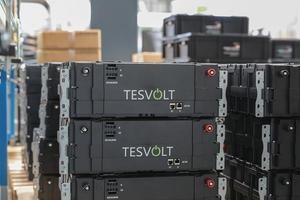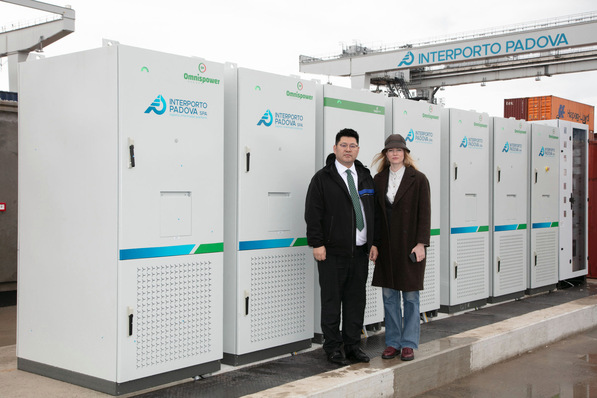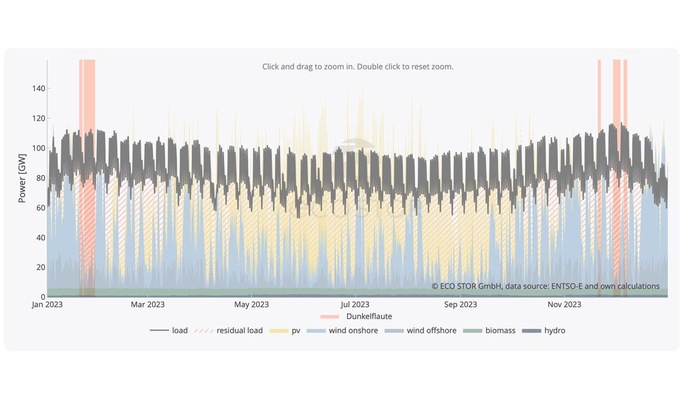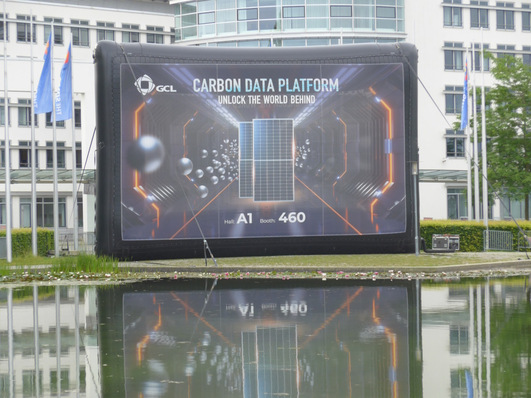Tesvolt, a manufacturer of energy storage systems for industry and commerce, is working to establish new production facilities for lithium storage systems with an annual production capacity of over one gigawatt hour (GWh). Innovations in the production process ensure that the storage systems can be both flexibly and efficiently mass produced. Tesvolt is financing its multimillion-euro investment in the gigafactory without any outside funding, while the EU will lend its support merely to finance around 10 percent of the production line costs. The new production line, warehouse and offices will be fully supplied with solar energy.
The first phase of renovation yielding 12,000 sqm of floor space will be finished in June, and by the final phase, annual production will have reached over one GWh in an area of 20,000 sqm. By then, it is estimated that the number of employees will have risen from today’s 60 to between 100 and 120.

“The world market for stationary energy storage systems has already reached a total capacity of 16 GWh. Europeans are calling for an end to harmful coal-fired power plants and diesel scandals. They want a future free of environmental disasters,” says Daniel Hannemann, who founded Tesvolt five years ago with partner Simon Schandert. “We want the gigafactory to be our contribution to reaching this goal, making clean and affordable energy possible anywhere in the world.”
Innovations in production facilities
The technology for the factory’s new semi-automated production line comes from Teamtechnik, a mechanical engineering company known for equipping many reputable automobile manufacturers with production and testing lines. Well-versed in both hardware and software, Teamtechnik’s cooperation ensures efficient and safe serial production of battery storage systems. Every battery module will be automatically tested for full functionality, and data from each process step will be recorded for seamless retracing capability.
Carbon-neutral production facilities
The gigafactory is designed for the fully carbon-neutral production of Tesvolt battery storage systems. A photovoltaic installation with a 200 kW power output will supply the electricity needed for the offices and storage system production. Any excess electrical energy will be stored in the factory’s own Tesvolt batteries, which will have a capacity of 350 kWh. Tesvolt will also employ innovative high-temperature heating pump technology, reliant exclusively on a natural refrigerant, so that even the facility’s heating system will run on solar power.
An agile office concept
The building complex will also house the new office spaces, which are set to be occupied in June. A year ago, Tesvolt introduced an agile organization structure — meaning no more hierarchies. Any and all decisions are made as a team. “Our new office layout reflects this — a generous, open floorplan complemented with many collaboration spaces and quiet zones. We want everyone to feel comfortable here. For us, that is work 2.0,” says co-founder Simon Schandert. “We don’t want to mindlessly process; we want to create innovative solutions. The agile organization makes us more efficient, enabling us to better respond to the rapidly changing battery market.” (HCN)
Stay informed, get our free newsletter twice a week. Register here







